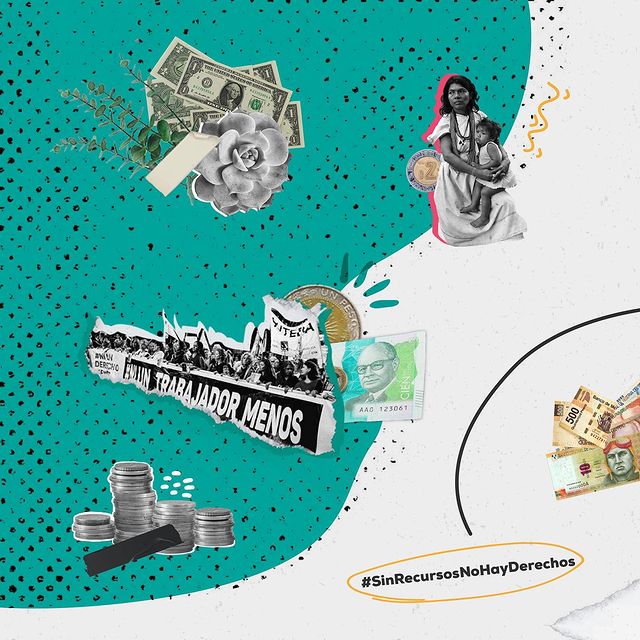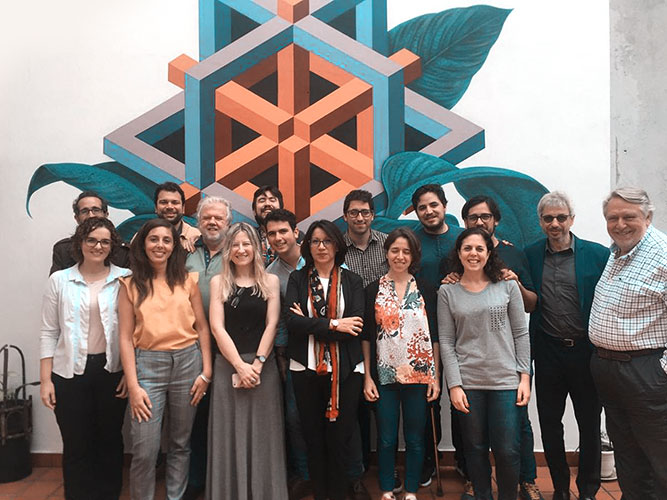About the Initiative
The Initiative for Human Rights Principles in Fiscal Policy seeks to develop and promote a compendium of principles and guidelines that summarize the human rights standards applicable to fiscal policy.
The compendium translates general human rights guidelines into more concrete guidelines that are easy to implement, based on rigorous analysis from different sources. In addition to generating such a Document, the project aims to encourage the use and implementation of The Principles and Guidelines by regional, national and local actors.
About Us
The Initiative for Human Rights Principles in Fiscal Policy has a governance structure that promotes gender, regional, and disciplinary diversity, ensuring that the process of development and dissemination of the principles and guidelines is open, informed and representative.
The Project
The Initiative develops and promotes a document of general principles and specific guidelines on human rights standards that are applicable to fiscal policy. It puts human rights at the center of tax discussions.
Team
Meet the group of experts from different disciplines and countries that contribute to the development of the principles and guidelines, and the civil society organizations that support the initiative.
History
The foundations of the Initiative were laid years ago, when a group of organizations and individuals from all over Latin America and the Caribbean began to focus on the field of tax justice and Human Rights.
Data
- 10 experts
- Gender diversity
- Interdisciplinary Committee
- 7 civil society organizations
- 5 face-to-face public consultations
The initiative is a project focused on Latin America and the Caribbean, organized in an open, collaborative, interdisciplinary, and diverse way in terms of gender and regional.

What is the Initiative for Human Rights Principles in Fiscal Policy?
- A Committee of Experts, in charge of drafting and adopting the principles and guidelines.
- A Steering Committee, made up of seven organizations in the region in charge of the administration of the initiative and the communication and dissemination of the Principles and Guidelines. Details on who is part of the Initiative and who supports it can be found in the section.
How did the Initiative come about?
Since the global economic crisis of 2008, important advances have been made in the world of human rights (both from the systems that protect and promote rights, and from civil society) that are linked to fiscal policy. Based on these advances, in recent years a regional group of civil society organizations working at the intersection of tax justice and human rights has come together, following an international strategy meeting held in Lima in 2015.
Since then, the matter has been presented before different regional and international organizations, who have examined evidence showing how fiscal decisions, such as regressive taxation, negatively impact rights. In particular, the issue has been brought to the attention of the Inter-American Commission on Human Rights (IACHR) through several different channels. In 2017, the IACHR included an analysis of the role of fiscal policy in the fight against poverty in its thematic report on Poverty and Human Rights. The IACHR noted that human rights obligations are fully applicable to fiscal policy and must be implemented throughout the policy cycle.
In this context the opportunity for the Initiative to take shape arose, following years of mutual collaboration, the definition of common goals, and various informal conversations and consultations with actors at the national, regional and international levels.
What drives the Initiative?
The Initiative supports fiscal policy approaches made from the perspectives of equality, legitimacy and justice, putting human rights at the center.
Although human rights and fiscal policy are closely related (mobilizing resources is essential for the fulfillment of all rights, and these in turn can contribute to significantly improving the quality of policies), in fact the fiscal implications of human rights are not fully systematized nor are they routinely considered. This “disconnect” has many negative consequences, which are aggravated in contexts of instability or economic crisis and in the face of the adoption of fiscal austerity measures.
The problems stemming from the disregard of human rights in fiscal decisions are especially serious in Latin America and the Caribbean. The region is characterized by marked inequalities, recurrent economic crises that are used to justify severe austerity measures, and an under- regulated exploitation of natural resources, exacerbating poverty rates and the perception of widespread corruption.
In this scenario, the Initiative seeks to highlight the potential that fiscal policy has for the realization of human rights. It provides a clear and specific normative and methodological framework for the application of human rights principles to the design, implementation, monitoring and accountability of fiscal matters. This approach would strengthen the accountability of governments, and would help states to establish prioritization criteria in the distribution of resources, preventing social crises resulting from cuts in public resources, mitigating the impacts of fiscal austerity policies, and strengthening the distributive potential and efficiency of fiscal policy in scenarios of greater stability.
Who is the Initiative for?
The Initiative is intended for a very broad audience:
- Institutional actors (from national and local governments and the judiciary but also from regional and international organizations with different mandates); social movements.
- Academic entities.
- Civil society organizations.
It seeks to build intersectoral alliances and bring together the tax justice, human rights and development movements, among others.
Timeline
A brief summary of the major milestones of the Initiative.

Organizations
Experts
Dialogue Processes
How is organized?
The Initiative is organized around two main bodies:
A Steering Committee and a Committee of Experts.
THE STEERING COMMITTEE
The Steering Committee is made up of a group of organizations and networks with extensive and recognized experience in the fields of human rights and tax justice in Latin America and the Caribbean. The organizations provide expertise on issues of transparency, budget analysis, combat against illicit financial flows, development financing, and the monitoring of human rights, among other things.
The Committee exercises overall coordination of the project and carries out all operational, communications and dissemination tasks. The administrative secretariat of the project is the Center for Economic and Social Rights (CESR).
Member Organizations

Asociación Civil por la Igualdad y la Justicia
The Civil Association for Equality and Justice (ACIJ) is a nonprofit organization dedicated to defending the rights of the most disadvantaged groups in society and strengthening democracy in Argentina. Founded in 2002, ACIJ aims to defend the effective validity of the National Constitution and the principles of the rule of law, promote compliance with laws that protect disadvantaged groups and the eradication of all discriminatory practices, as well as contribute to development of participatory and deliberative practices of democracy.

Centro de Estudios Legales y Sociales.
The Center for Legal and Social Studies is an Argentinian human rights body created in 1979, during the last military dictatorship, promoting the protection of rights and their effective exercise, as well as justice and social inclusion at the national and international levels. Today the main areas of work are: memory, truth and justice for crimes committed under the auspices of state terrorism; institutional violence and incarceration policies as areas of violation of human rights; social inclusion and economic, social and cultural rights, especially in relation to access to land and a decent environment; public policies on mental health; reforms of the justice system, the rights of migrants, sexual and reproductive rights, and freedom of expression.

Center for Economic and Social Rights
The Center for Economic and Social Rights (CESR) is an international non-governmental organization that fights against poverty and inequality by supporting human rights as the principles that should guide social, economic and development policies. CESR works for the recognition and implementation of economic and social rights-among them, the rights to education, health, food, housing and work-as a powerful tool to promote social justice and human dignity. Its international and interdisciplinary team is based in New York and comes from the human rights, development and social justice movements from different parts of the world.

Dejusticia
Dejusticia is a center for legal and social studies located in Bogotá, Colombia and dedicated to strengthening the rule of law and promoting human rights in Colombia and the Global South. Dejusticia promotes social change through the rigorous research of public policy proposals, and carries out advocacy campaigns in high-impact forums. It also carries out strategic litigation and designs and delivers educational and training programs. Dejusticia asserts that knowledge committed to social justice can contribute to change, using the dual approaches of research and action.

Fundar
Fundar is a plural and independent civil society organization based in Mexico that is governed by the principles of horizontality and transparency. With its work, it seeks to advance substantive democracy and contribute to generating structural changes that positively transform power relations between society and government. The goal is a society that is fair and participatory, and where the State fully complies with the human rights of individuals, communities and peoples to generate decent living conditions and well-being for all.

INESC

Red de Justicia Fiscal de América Latina y El Caribe
The Latin American and Caribbean Tax Justice Network- Regional The Latin American and Caribbean Tax Justice Network is an independent group of organizations that seeks to strengthen the work of its members by exchanging learnings from mutual experiences and actions in order to enhance impacts in the search for a new regional tax model. The network’s work includes teams dedicated to research on the links between taxation and gender, taxation and human rights, and taxation and territory. It also works on designing and promoting regional campaigns on tax justice. It is made up of 24 organizations from 14 countries in Latin America and the Caribbean and is a member of the Global Alliance for Tax Justice, a collective of networks from Latin America, Asia, Africa, Europe and the United States.

GI-ESCR
Gl-ESCR is a non-governmental organization that promotes transformative change to end endemic problems of social and economic injustice through a human rights perspective. Its mission is to transform power relations to enable every person and community to enjoy their economic, social and cultural rights (ESCR) and all other human rights now and in the future.
How is it organized?
The Initiative is organized around two main bodies:
A Steering Committee and a Committee of Experts.
COMMITTEE OF EXPERTS
The Committee of Experts brings together people from different disciplines and countries in the region recognized for their expertise and authority in the fields of fiscal policy, financial and tax law, human rights, constitutional law and other relevant disciplines. The Committee is responsible for the adoption of the Principles and Guidelines, after a process led by the Drafting Committee sub-group, who compiled the document.
Members of the Committee

Dayana Blanco Acendra
General Director of ILEX Acción Jurídica
Dayana Blanco Acendra is a lawyer from the University of Cartagena. She has an specialization in Procedural Law of the Universidad Libre and Private-Economic Law of the National University of Colombia. She has a master’s degree in Environment and Development from the same university and an LLM with a specialization in Critical Race Theory from the University of California, Los Angeles. She has worked in the private sector, the Judicial Branch, land restitution and territorial rights, gender and in the art and culture sector in Colombia.

Juan Pablo Bohoslavsky
Expert in External Debt and Human Rights

Horacio Corti
Full Professor of Law

María Goenaga
Professor of Sociology and Public Opinion
Mari Goenaga has a PhD in Journalism and Bachelor of Sociology. She is currently a Professor of Sociology and Public Opinion in the Departmental Section of Applied Sociology of the Complutense University of Madrid (UCM). She also carries out international consultancy work for several international organizations, including the World Bank, UN, and the International Center for Tropical Agriculture (CIAT).

Verónica Grondona
Economist
Verónica Grondona is an economist with degrees from the Universidad of Buenos Aires and Torcuato Di Tella University. She is currently a PhD student in economic development at the National University of Quilmes and an investigator for the Tax Justice Network.

Ricardo Martner
Head of the Fiscal Affairs Unit
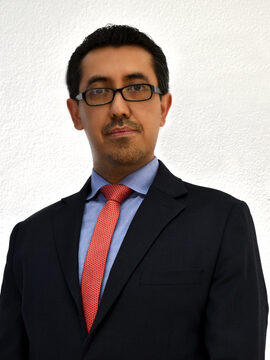
Jonathan Menkos Zeissig
Executive Director of ICEFI
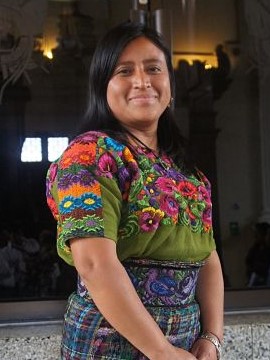
Bibiana Leticia Ramírez Ramírez
Degree in Legal and Social Sciences
Bibiana Ramírez has a degree in Legal and Social Sciences from the Rural University of Guatemala, and is a Teacher of Intercultural Bilingual Primary Education. She is part of the Maya Women’s Organizations COMAM, and the Political Directorate of the Council of the Maya People CPO. Bibiana’s work includes the autonomy and self-determination of indigenous peoples, ethnic and political identity, political participation, and fiscal policy.

Pedro Rossi
Professor of Economics
Pedro Rossi is a Professor at the Institute of Economics of Unicamp (Brazil) and researcher at the Center for Economic and Economic Policy Studies (CECON). He was previously director of the Brazilian Society of Political Economy (SEP).

Magdalena Sepulveda
Expert
Magdalena Sepúlveda was the Executive Director of the Global Initiative for Economic, Social and Cultural Rights and is also a member of the Independent Commission for the Reform of International Corporate Taxation (ICRICT). From 2008 to 2014 she was the United Nations Special Rapporteur on extreme poverty and human rights.
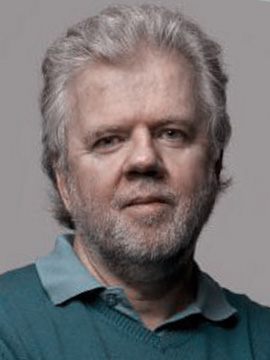
Rodrigo Uprimny
Lawyer
Rodrigo is a lawyer, with a master’s degree (DEA) in development sociology from the Paris I University (IEDES) and a doctorate in economics from the Amiens University. Professor and emeritus professor at the National University of Colombia and visiting professor at several universities. He was an auxiliary magistrate in charge of the Constitutional Court and is a co-judge of that Court and of the Council of State. He is a member of the International Commission of Jurists and the United Nations ESCR Committee 2015-2018. He is a columnist for El Espectador. He was Director of Dejusticia and is currently the director of drug policy.
The Initiative is supported by a broad platform of institutions and individuals who make specific contributions

